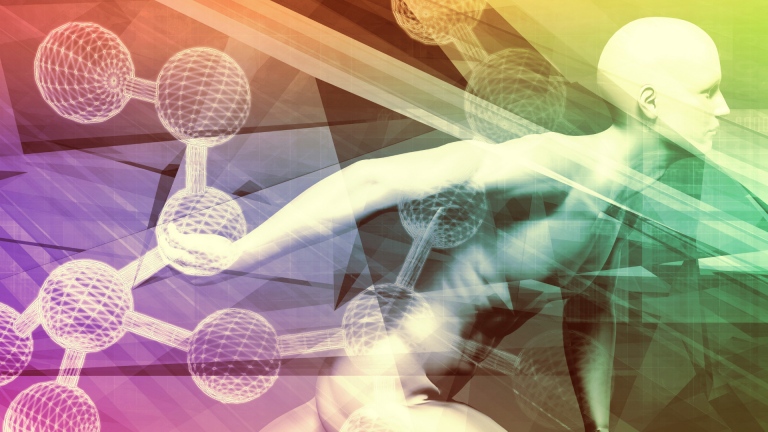Low Testosterone in Women is full of Television, internet, magazine, and radio ads. They all target men with products that address low testosterone as we age, but nothing is directing or teaching women about low testosterone. Despite being classified as a male hormone, women also produce testosterone.
Testosterone therapy in women has become a hot-button problem issue as women begin to realize the risk of low testosterone levels dropping with age for women and men.
Testosterone therapy is used to treat the symptoms of testosterone deficiency in perimenopause, premenopause, and postmenopausal women, as research continues to show that healthy testosterone levels are essential for the physical and mental health of both women and men.
Which Women Can Be at Risk for Low Testosterone
The ovaries produce both testosterone and estrogen; as they age, they have less estrogen and testosterone. As women enter perimenopause and pre-menopause, testosterone will be diminished by the age of the ’30s.
Once women reach full menopause, they commonly produce 75% less testosterone than in their 21s.
Every woman becomes at risk of low testosterone as she ages, and women who go through hysterectomy or oophorectomy have an even higher chance of dealing with or having low testosterone levels.
What are the Symptoms of Perimenopause?
Perimenopause occurs when a woman’s hormonal cycle transitions toward pre-menopause, and infertility begins. It often starts in women in their late30s and lasts up to 11 years; the average duration is ~4 years. During perimenopause, menses become less frequent, and the symptoms are typically associated with menopause.
The most common symptoms of perimenopause are:
- Hot flashes and Reduced sex drive
- Discomfort and dryness during sex
- Fatigue and Problems sleeping
- Mood swings and Migraines
- Severe premenstrual syndrome
- Irregular periods and Breast tenderness
- An urgent need to urinate
- Urine leakage, particularly when sneezing or coughing
Dangers of Testosterone Deficiencies in Women as We Age
Women who begin experiencing low testosterone may notice many of the same symptoms that men deal with.
Low levels of testosterone in women often lead to an increased risk of :
- Reduced fertility
- Increased risk of Polycystic Ovarian Syndrome (PCOS)
- Psoriasisosteoporosis, since low T levels can leach away strength from the skeleton.
Low levels can also increase the risk of gaining weight since low testosterone has been linked to controlling fat mass in women. A report published in the Journal for Women’s Health even showed that low testosterone in women could be a risk factor for heart disease. Since the number one killer is cardiovascular disease in women and men, this is important of balanced your hormones, including testosterone, progesterone, and estrogen,
What’re The Benefits of Progesterone, Estrogen, and Testosterone Therapy?
Women With Low Progesterone May Experience Symptoms As:
- Insomnia, trouble sleeping, waking up in the middle of the night
- Fuzzy Thinking” is misplacing keys, forgetting where the car is parked, and feeling overwhelmed.
- Worsening PMS with more substantial, more painful periods
- Headaches are increasing in frequency, with new onset migraines.
- Testosterone is essential as a woman’s testosterone level declines in perimenopause.
Women may experience symptoms such as;
- Decreased libido
- Inability to orgasm
- Reduced the sense of wellbeing, energy, and sex drive
- Dysphoria and much more
- The final hormone in perimenopause is estrogen.
This will occur late in perimenopause, signaling the transition into early premenopause or menopause.
Symptoms of low estrogen can include:
- Hot Flashes
- Night Sweats
- Pain during intercourse
- Thinning, drooping skin
- Recurrent urinary tract infections
Testosterone has the potential to relieve these symptoms. Studies show that treating women with testosterone can significantly improve their sex drive. For women going through perimenopause and premenopause or menopause, testosterone therapy often provides symptom relief.
Studies show that testosterone therapy in women can relieve the symptoms of menopause, including:
- Urinary urgency
- Incontinence
- Vaginal dryness
- and hot flashes
An increasing number of women are being diagnosed with low testosterone in women’s. Although men make and need much more testosterone than women, it is still essential for a normal androgen response in women.
Even though many of the risks of low testosterone in women are similar in men, there are several female-specific risks:
- Reduced fertility
- Increased risk of Polycystic Ovarian Syndrome (PCOS)
- Psoriasis
Because low testosterone in women generally occurs around middle age, it is often accompanied by low estrogen in the pre-menopausal period. This combination of two low hormones leads to a high rate of heart disease, bone fractures, and vaginal atrophy.
**NOTE** The content in this blog is subject to interpretation and is the opinion of the content writer. We do not claim it to be fact. We encourage you to consult a medical doctor before taking any prescribed medications or supplements.
Conclusion
Supporting Hormones health is essential for overall well-being and vitality. By incorporating regular exercise, proper nutrition, adequate sleep, stress management techniques, and IV therapy, you can help maintain optimal testosterone levels and lead a healthy, balanced life. Always consult a healthcare professional before making significant changes to your lifestyle or starting any new treatments to ensure they suit your needs.
At AAI Rejuvenation Clinic, we advise anyone to think seriously about beginning Hormone treatment if there is no medical need for it. However, we will take every precaution to ensure that you read your program’s positive benefits by providing the latest at-home hormonal mouth-swab testing to ensure we are continually monitoring your progress and aware of any adverse side effects. Fill out the Medical History Form, or if you need more information, call us at (866) 224-5698 or (866) AAI-Low-T.
Low Hormone Symptoms
- Motivation
- Sex Drive and Desire
- Depression
- Fatigue
- Erectile Dysfunction
- Cholesterol
- Low Energy
- Memory Loss
- Osteoporosis
- Wounds & Illness
- Muscle Mass
- Sleep Disturbances
- Thyroid Dysfunction
- Weight Gain
]]>




